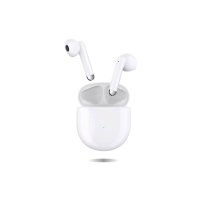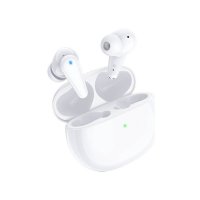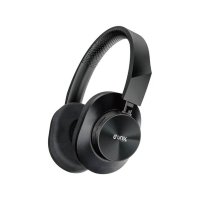Do Noise-Canceling Headphones Damage Your Ears?
Noise-canceling headphones are a game-changer. They block out background noise, let you enjoy your music or calls without cranking up the volume, and even make flights or busy commutes more bearable.
But a common concern people have is:
Can noise-canceling headphones damage your ears?
Let’s break it down.
How Noise-Canceling Headphones Work
Noise-canceling headphones mainly use two technologies:
Passive Noise Cancellation: Physical features like cushioned ear cups that block out sound naturally.
Active Noise Cancellation (ANC): Small microphones detect external noise and create an “opposite sound wave†to cancel it out.
The ANC process creates a very subtle electronic signal inside the headphones, but it doesn’t produce anything dangerous by itself.
So, Can They Damage Your Ears?
The short answer is: Not directly.
The noise-canceling feature itself—whether passive or active—does not harm your ears.
However, how you use the headphones can make a big difference. Here's what you should know:
1. Volume Levels Are the Real Risk
Most hearing damage happens because of listening at high volumes for extended periods, not because of the noise-canceling technology.
In fact, noise-canceling headphones often help prevent hearing damage because you don’t need to turn the volume up as high to drown out background noise.
Tip: Keep your volume below 60% of the maximum and take breaks every hour.
2. Pressure Sensation
Some people feel a slight “ear pressure†when using active noise-canceling headphones.
This isn’t harmful, but it can feel uncomfortable, especially during the first few uses. It’s caused by how your brain interprets the absence of external sound, not by anything physically happening to your ear.
If the pressure feeling bothers you, you can:
Use noise-canceling mode only when necessary (like on planes or in very noisy places).
Switch to headphones that offer adjustable ANC levels.
3. Poorly Designed Headphones
Very cheap or poorly made noise-canceling headphones might emit low-level electronic hissing sounds or unstable ANC signals.
These won’t usually cause direct damage, but they could lead to discomfort, ear fatigue, or annoyance over time.
Choosing good-quality headphones from a trusted brand reduces this risk.
Benefits of Noise-Canceling Headphones for Ear Health
Lower listening volumes: No need to blast your music to overpower outside noise.
Less ear strain: Especially useful during long flights, train rides, or working in noisy environments.
Better focus: Helps reduce mental fatigue caused by constant background noise.
Final Verdict
Noise-canceling headphones themselves are not harmful to your ears.
The real danger lies in listening too loudly for too long, whether you use noise-canceling or regular headphones.
Used wisely—at moderate volumes and with breaks—noise-canceling headphones can actually protect your hearing rather than damage it.



